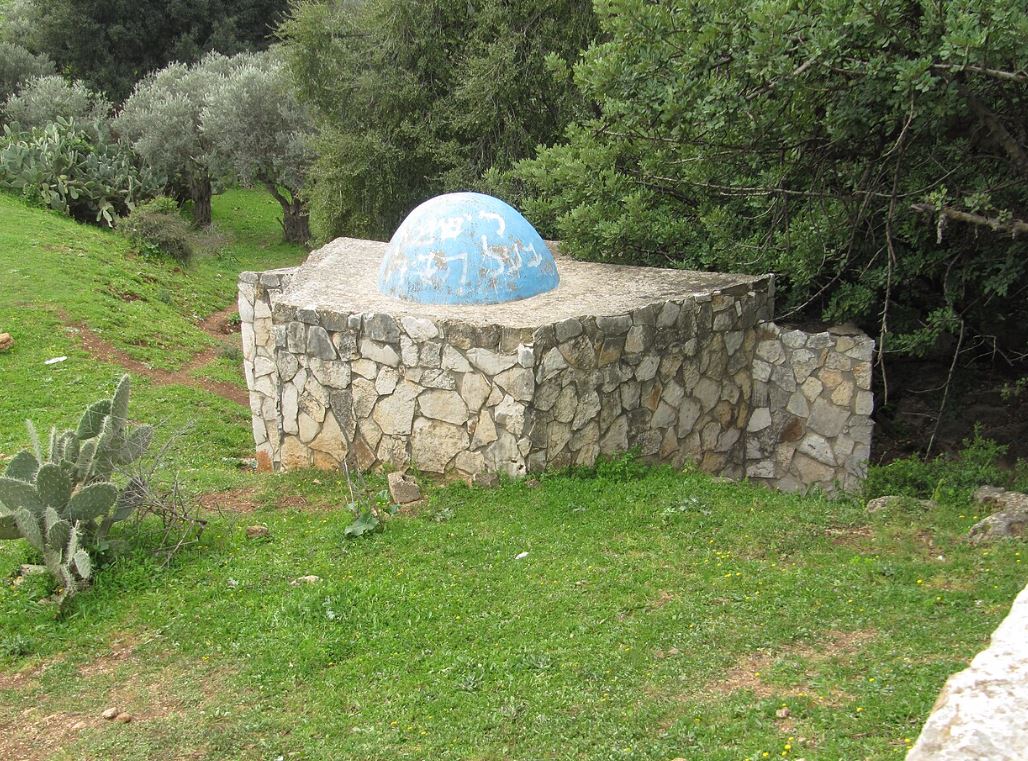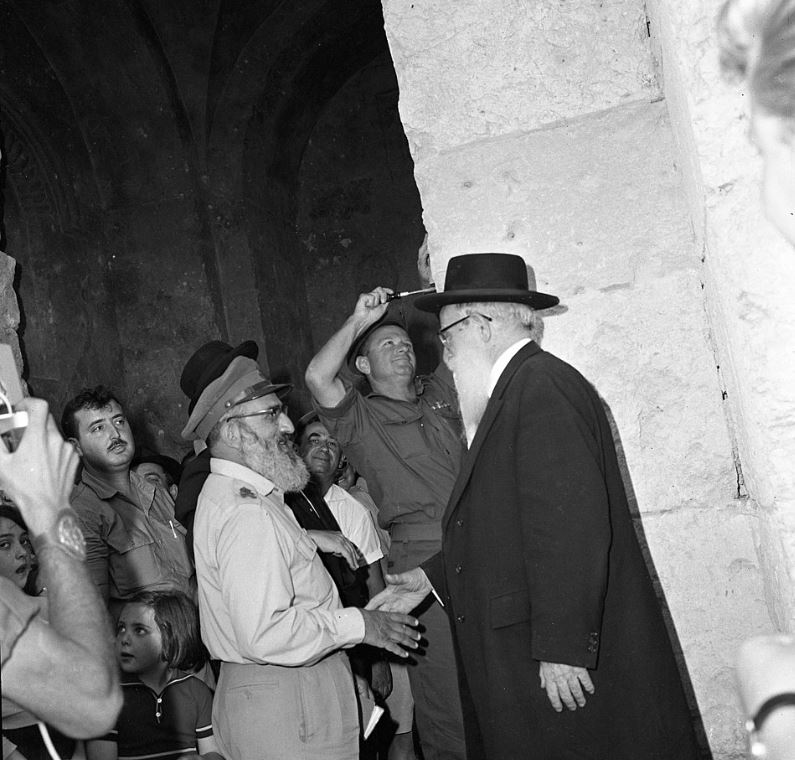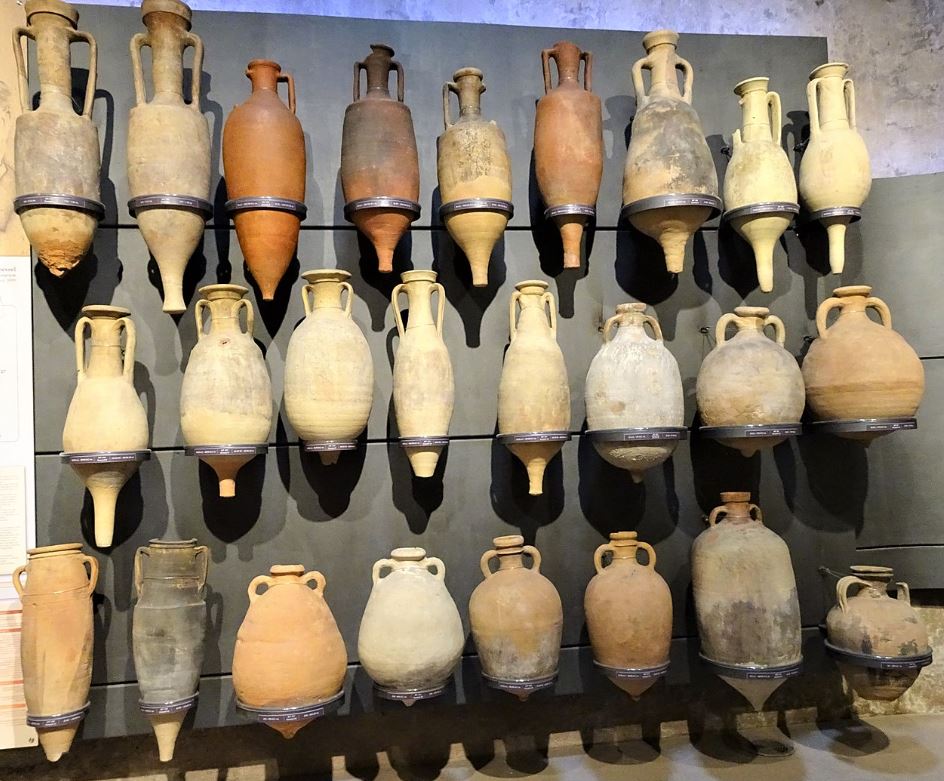Landscape can determine language. A country with many bodies of water has numerous words to describe them: lake, bay, river, inlet, etc. A country like Israel has many words for desert because it is prominent in our landscape, physically as well as spiritually. The most well-known Hebrew word for desert is midbar מדבר, although there are many other ones as well, as we can see in this verse in the book of Jeremiah:
וְלֹ֣א אָֽמְר֔וּ אַיֵּ֣ה יְהֹוָ֔ה הַמַּעֲלֶ֥ה אֹתָ֖נוּ מֵאֶ֣רֶץ מִצְרָ֑יִם הַמּוֹלִ֨יךְ אֹתָ֜נוּ בַּמִּדְבָּ֗ר בְּאֶ֨רֶץ עֲרָבָ֤ה וְשׁוּחָה֙ בְּאֶ֙רֶץ֙ צִיָּ֣ה וְצַלְמָ֔וֶת בְּאֶ֗רֶץ לֹא־עָ֤בַר בָּהּ֙ אִ֔ישׁ וְלֹא־יָשַׁ֥ב אָדָ֖ם שָֽׁם׃
“They never asked themselves, ‘Where is God, who brought us up from the land of Egypt, Who led us through the wilderness, a land of deserts and pits,
a land of drought and darkness, a land nobody had traversed, where no human being had dwelt?’ ” (Jeremiah 2:6)

Mohamed3171979, CC BY-SA 4.0 <https://creativecommons.org/licenses/by-sa/4.0>, via Wikimedia Commons
Midbar, arava, shuha, tziya: all synonyms for desert, although with different connotations and nuances. What is the literal meaning of the word midbar? And how is it connected to this interesting saying in Sanhedrin?
אמר לו הקב”ה טול מקל והך על קדקדם דבר אחד לדור ואין שני דברין לדור
“Take a rod and strike upon their skulls. There must be one leader for the generation, and not two leaders for the generation.” (Sanhedrin 8a)
The root דבר in Aramaic means to lead flocks to pasture. When the Targum Onkelos wants to explain that Moses led his flock he says:
וּמשֶׁה הֲוָה רָעֵי יָת עָנָא דְיִתְרוֹ חֲמוֹהִי רַבָּא דְמִדְיָן וּדְבַר יָת עָנָא
“Now Moses, tending the flock of his father-in-law Jethro, the priest of Midian, drove the flock into the wilderness . . ” (Shmot 3:1)
We can see this root at work in this phrase in Isaiah:
וְרָע֥וּ כְבָשִׂ֖ים כְּדׇבְרָ֑ם וְחׇרְב֥וֹת מֵחִ֖ים גָּרִ֥ים יֹאכֵֽלוּ׃
“Then shall the lambs feed as in their pasture, and fat ones and strangers shall feed in the ruins.” (Isaiah 5:17)
In much of the Land of Israel, flocks usually mean sheep and goats and the place that they pasture is the desert. The midbar is the ideal place for davar, pasturing your flocks. The desert in Israel, particularly the Judean Desert (see here) gets enough rain to grow food for animals but not quite enough to make it worthwhile to grow crops. The honest shepherd can happily graze his flock without worrying that he is stealing anyone’s farm land. Rashi explains that this is the source of the quarrel between Avraham’s shepherds and Lot’s:
“ ‘And there was a quarrel’ because Lot’s shepherds were wicked men and grazed their cattle in other people’s fields. Abram’s shepherds rebuked them for this act of robbery, but they replied, ‘The land has been given to Abram, and since he has no son as heir, Lot will be his heir: consequently this is not robbery.’ “ (Rashi to Bereshit 13:7)
Once we understand that davar דבר means guiding flocks to pasture, we can extrapolate to other words. The most obvious is to leadership. Just as the shepherd conducts his flock, so too does the leader take his people from place to place. This is the meaning of our Gemara: there can only be one chief for the generation. The connection between leaders and shepherds is not only literal. Many of Israel’s leaders have been shepherds, from the Patriarchs, through Moses, David, and many of the prophets. A shepherd must rely on God, his own shepherd, in the frightening desert:
“A Psalm of David. The Lord is my shepherd; I shall not want. He makes me to lie down in green pastures: he leads me beside the still waters.” (Tehillim 23:1-2)
At the same time, the shepherd is responsible for his own animals and must protect them:
“David replied to Saul, “Your servant has been tending his father’s sheep, and if a lion or a bear came and carried off an animal from the flock, I would go after it and fight it and rescue it from its mouth. And if it attacked me, I would seize it by the beard and strike it down and kill it.” (Shmuel I 17: 34-35)
This duality, the need for God to help you and for you to help others, creates a true Jewish leader, God-fearing and solicitous.

ארכיון עין השופט, CC BY 2.5 <https://creativecommons.org/licenses/by/2.5>, via Wikimedia Commons
The shepherd and the leader move their flocks from place to place. Movement is also part of דבר. The disease דֶבֶר dever is highly contagious – it moves quickly through its victims. A happier word is דברה , a raft:
עֲ֠בָדַ֠י יֹרִ֨דוּ מִן־הַלְּבָנ֜וֹן יָ֗מָּה וַ֠אֲנִ֠י אֲשִׂימֵ֨ם דֹּבְר֤וֹת בַּיָּם֙
“My servants will bring them down to the sea from the Lebanon; and at the sea I will make them into floats” (Kings 1 5:23)
Leadership is not only from the top down, it can be from the bottom up. In answer to a question, Abaye instructs Rava to go out and see what the people are doing:
פוק חזי מאי עמא דבר
“Go out and see how the people are conducting themselves” (Eruvin 14b)
The leader not only moves his congregation, he gathers them in one place. This is (perhaps) the connection to another word, דביר dvir, the inner sanctum of the Temple.
וּדְבִ֧יר בְּתוֹךְ־הַבַּ֛יִת מִפְּנִ֖ימָה הֵכִ֑ין לְתִתֵּ֣ן שָׁ֔ם אֶת־אֲר֖וֹן בְּרִ֥ית יְהֹוָֽה׃
“In the innermost part of the House, he fixed a Shrine in which to place the Ark of God’s Covenant.” (Kings I 6:19)
The word dvir will be mentioned this week in the special al hanisim prayer we add for Chanukah:באו בניך לדביר ביתך, Your children came to the inner chamber of Your house.

National Library of Israel, Public domain, via Wikimedia Commons
The Rabbis give a different explanation for dvir – they connect it to the word for speech:
“Similarly, the Holy of Holies [devir] – Rabbi Ḥiyya and Rabbi Yanai, one said: The place from which commandments [diberot] emerge to the world, and one said: The place from which God’s word [dibur] emerges to the world”. (Bereshit Rabba 55:7)
While etymologically there is no proof that leading and speaking, davar and dibbur, are connected, they do have the same 3-letter root. Could there be a (midrashic) connection: just as people and sheep travel, speech travels as well? Or perhaps the best tool for a leader is speech?
Which of these words have entered modern Hebrew? We do not generally call a leader דבר but we do use the word מנהיג, one who leads us from place to place. However, there is a דבר who has had a prominent place in Israeli life for more than a year, the דובר צה”ל, the army spokesman. We have been following him very carefully since last October 7th.

IDF Spokesperson’s Unit
Let us pray that the dover will bring us good news and that the davar will succeed in leading us through these complicated times.










